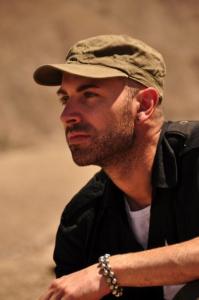 Please join us Thurs Oct 20th at 4pm! Reception will follow.
Please join us Thurs Oct 20th at 4pm! Reception will follow.
A Paleogenomic Perspective on the Population History of the Central Andes and the peopling of South America
Lars Fehren-Schmitz
University of California Santa Cruz, UCSC Paleogenomics Labs
& Department of Anthropology
Location: ARF (College 2251), Time :4pm on Thurs 20 October 2016.
The Central Andes harbor perfect experimental conditions to study the relationship of environment, culture and the evolution of human genetic diversity. In the ~14,000 years since the onset of human presence, the population history in the Central Andes has been driven by episodes of environmental change, adaptation to ecological conditions, cultural innovations, political interactions, and population pressures. Due to the relative isolation of prehistoric Native American populations from the global gene pool until the European Contact, admixture with other continental populations can be eliminated as explanation for observed genomic changes making it ideal to study genetic adaptation, or the impact of socioeconomic changes on genetic structure. Recent technological advance in molecular genetics opened up new and exciting opportunities for paleogeneticists to gain insights into prehistoric population dynamics and the evolutionary adaptability of our species inconceivable just a few years ago. Here I will report on the efforts of our lab to use these genomic tools to explore Central Andean population history. I present new insights into the ancestry of early Andean highlanders, population relationships, and admixture events that help us to better understand the interaction of Central Andean groups with other regional populations of South America, but also how selection due to the exposure to physical stressors like hypoxia shaped the Andean gene pool.
Lars Fehren-Schmitz is an Assistant Professor of Anthropology at UCSC, member of the UCSC Genomics Institute, and one of the three PIs running the UCSC Paleogenomics Labs. Before he came to UCSC he worked for Yale University, the Ruhr-University Bochum, and the Georg-August University Goettingen where he also received his PhD in Biology in 2008. He also received two MA degrees from the same institution in Archaeology, and Biology. Dr. Fehren-Schmitz’s research uses ancient and modern DNA in research frameworks informed by archaeological and paleoecological sources to explore how the twin forces of culture and biology shaped human genomic diversity, demography and health.
|
A Paleogenomic Perspective on the Population History of the Central Andes and the peopling of South America Lars Fehren-Schmitz University of California Santa Cruz, UCSC Paleogenomics Labs & Department of Anthropology |






